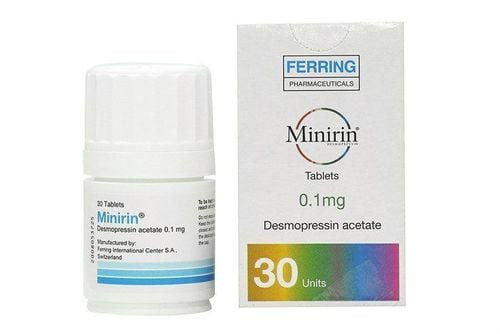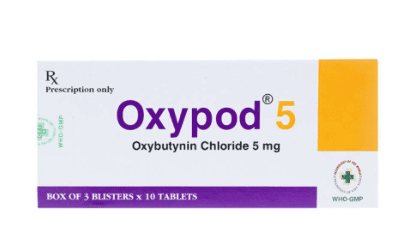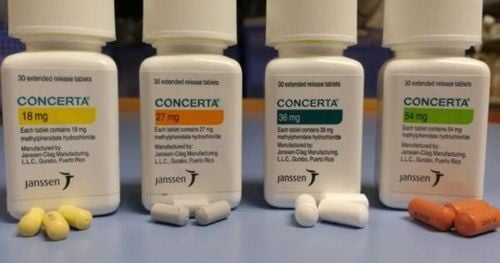This is an automatically translated article.
Studies show that poor sleep has a negative impact on hormones, exercise performance, and brain function. A good night's sleep is just as important as getting regular exercise and eating a healthy diet. If you want to optimize your health or lose weight, getting a good night's sleep is one of the things you should do.1. Increase exposure to light throughout the day
The body as a natural time clock is known as the circadian rhythm. It affects the brain, body, and hormones. It helps to stay awake and sends signals to the body when it's time to sleep.Natural sunlight or bright light during the day will help keep circadian rhythms healthy. This improves energy during the day, as well as the quality and duration of sleep at night.
In people with insomnia, exposure to bright light during the day improved sleep quality and duration. It also reduced the time it took to fall asleep by about 83%. One study in older adults found that two hours of bright light exposure during the day increased sleep time by two hours and sleep efficiency by 80%.
Therefore, most studies involving people with severe sleep problems show that daily light exposure will most likely help you even if you experience average sleep. So, try daily exposure to sunlight to improve your sleep at night.
2. Reduce blue light exposure at night
Exposure to light during the day is beneficial, but exposure to light at night has the opposite effect, especially blue light. This is due to the effect of this light on circadian rhythms. It confuses the brain and thinks it's still daylight. At the same time, it also reduces hormones like melatonin, which is a hormone that promotes relaxation and deep sleep.Blue light - emitted by electronic devices like smartphones and computers - is the worst thing that affects sleep.
There are several common methods that can be used to reduce blue light exposure including:
Wearing blue light blocking glasses. Install a blue light blocking app on your smartphone. Stop using the television and turn off the lights two hours before bedtime.
3. Do not use caffeine at the end of the day

Không nên uống cà phê sau 3-4h chiều
In a recent study, consuming caffeine up to 6 hours before bedtime can significantly reduce sleep quality. Because caffeine can be high in the blood in 6-8 hours. Therefore, drinking large amounts of coffee after 3-4 pm is not recommended, especially if you are sensitive to caffeine or have trouble sleeping.
4. Reduce the amount of nap time
Although, napping has many benefits. However, prolonged naps or irregular naps can negatively affect sleep throughout the day. Sleeping during the day can confuse circadian rhythms and make falling asleep at night more difficult.In fact, recent research shows that participants end up sleeping more during the day after they take a nap. Another study noted that napping for 30 minutes or less can boost daytime brain function. But long naps can be harmful to health and sleep quality.
However, a study has also proven that people who have a habit of napping often do not experience poor quality sleep or interrupted sleep at night. So, if you nap regularly and sleep well, you shouldn't worry. The impact of napping depends on the individual.
5. Try to sleep and wake up at a fixed time
The body functions as a circadian rhythm. So getting the right amount of sleep and sleep time can support better sleep quality.Several studies have noted that people who have irregular sleep patterns and go to bed late on weekends are reported to have poor sleep. Studies have also highlighted that irregular sleep patterns can alter birth rhythms or melatonin levels. This signals to the brain and affects sleep.
In case, struggling with sleep, you should get into the habit of waking up and going to bed at similar times. After a few weeks, you'll have a good night's sleep and won't even need to set an alarm to wake up.
6. Melatonin Supplement
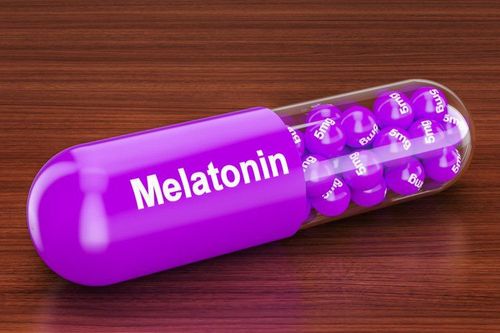
Melatonin thường được sử dụng để điều trị chứng mất ngủ
Melatonin is often used to treat insomnia, so it can be one of the easiest ways to fall asleep faster.
Some studies show that taking 2 mg of melatonin before bed can help improve sleep quality and energy the next day and help you fall asleep faster. In another study with similar results, half of the study group fell asleep faster and had a 15% improvement in sleep quality.
In addition, melatonin is also beneficial when traveling and adjusting to the new time zone. Therefore, it will help the body's circadian rhythm return to normal.
Melatonin can be supplemented 30 to 60 minutes before bedtime with a dose of 1 - 5mg. Start with a low dose to gauge your body's tolerance and then increase it slowly as needed. Because melatonin can alter brain chemistry, it is important to consult a doctor or medical professional before taking a supplement.
7. Some Supplements
Consider taking some supplements that may help with relaxation and good sleepGinkgo biloba : A natural herb with many benefits, it can aid sleep, relaxation and stress relief, but by evidence is limited. Glycine: A few studies show that taking 3 grams of the amino acid glycine can improve sleep quality. Valerian Root: Some research shows that valerian may help you fall asleep and improve sleep quality. Magnesium : Responsible for more than 600 reactions in your body, magnesium can improve relaxation and enhance sleep quality L-theanine : An amino acid, L-theanine can improve relaxation and sleep. Lavender: A powerful herb with many health benefits. Lavender has a calming effect and holds a scent to improve sleep.
8. Do not drink alcoholic beverages
Having a few drinks at night can negatively affect sleep and hormones in the body. Of these, alcohol is known to cause or increase symptoms of sleep apnea, snoring, and disrupted sleep patterns. It also changes the production of melatonin at night, which plays a key role in the body's circadian rhythms. In addition, some studies show that alcohol consumption at night reduces growth hormone (GH), which is a hormone that plays a role in circadian rhythms.
Có một vài đồ uống vào ban đêm có thể ảnh hưởng tiêu cực đến giấc ngủ và hormone trong cơ thể
9. Optimizing the bedroom environment
Many people believe that the bedroom environment and its setting are important factors in getting a good night's sleep. These factors include temperature, noise, external lighting and furniture arrangement.Several studies have shown that outside noise, often from traffic, can cause poor sleep and long-term health problems. Or another study on the bedroom environment of women found that about 50% of participants noticed an improvement in sleep quality when noise and light were reduced.
10. Bedroom temperature setting
Body temperature and bedroom can also have a profound effect on sleep quality. Some studies show that bedroom temperature affects sleep quality more than outside noise. Studies reveal that increased body and bedroom temperature can decrease sleep quality and increase alertness.A room temperature of about 20 degrees Celsius seems to be a good temperature for most people to get a good night's sleep.
11. Don't eat late at night
Eating late at night can negatively affect both sleep quality and the release of the hormones GH and melatonin.A recent study found that a meal high in carbs and eaten 4 hours before bedtime helped people fall asleep faster. Another study found that a low-carb diet also improved sleep.
12. Relax in the evening
Relaxation techniques performed before bedtime have been shown to improve sleep quality and it is also a popular technique used to treat insomnia.Several studies have found that relaxing massage improves sleep quality in people with epilepsy.
Some relaxation methods include listening to music, reading, taking a hot bath, meditating, breathing deeply.
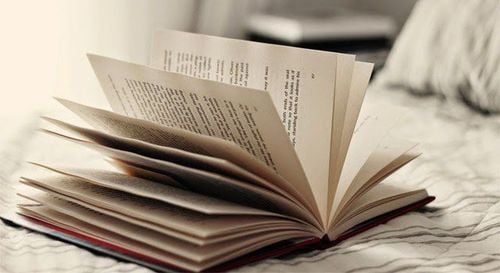
Một vài kỹ thuật thư giãn như đọc sách, nghe nhạc,.. trước khi đi ngủ sẽ giúp cải thiện chất lượng giấc ngủ của bạn
13. Relaxing bath
Relaxing baths are another popular way to sleep better. Studies have shown that it can help improve overall sleep quality and help people (especially older adults) fall asleep faster.Another study showed similar results, taking a hot bath 90 minutes before bed improved sleep quality and helped people get to sleep more deeply. Also, if you don't want to bathe at night, you can soak your feet with hot water, it will relax and improve sleep.
14. Rule out sleep disorders
An underlying health condition may be the cause of sleep problems. One of the common problems is sleep apnea. It causes irregular and interrupted breathing. People with this disorder stop breathing continuously during sleep.Other common medical diagnoses include sleepwalking and circadian rhythm sleep or wake disturbances, which are common among shift workers.
15. Use a comfortable bed
In addition to a relaxing environment, bed quality can also affect sleep. One study looked at the benefits of a new mattress for 28 days and found it reduced back pain by 57%, shoulder pain by 60% and stiffness by 59%. It also improves sleep quality by 60%.16. Exercise Regularly - But Not Before Bed

Tập thể dục là một trong những cách hỗ trợ khoa học tốt nhất để cải thiện giấc ngủ và sức khỏe
A study done in older adults has determined that exercise almost halves the time it takes to fall asleep and provides an additional 41 minutes of sleep at night. Or in people with severe insomnia, exercise offers more benefits than most drugs.
Although daily exercise is a good way to get a good night's sleep, if done too late in the day it can cause sleep problems. This is due to the stimulating effect of exercise, which increases alertness and secretion of hormones such as epinephrine and adrenaline.
17. Don't drink any water before going to bed
Nocturia affects sleep quality and daytime energy. And drinking large amounts of fluids before bed can lead to similar symptoms.Although, hydration is important for the health of the body, it is advisable to reduce your fluid intake late in the evening. Try not to drink any liquids 1-2 hours before bedtime. Also, peeing before going to bed will help prevent you from waking up in the middle of the night.
Please dial HOTLINE for more information or register for an appointment HERE. Download MyVinmec app to make appointments faster and to manage your bookings easily.
Article referenced source: healthline.com



